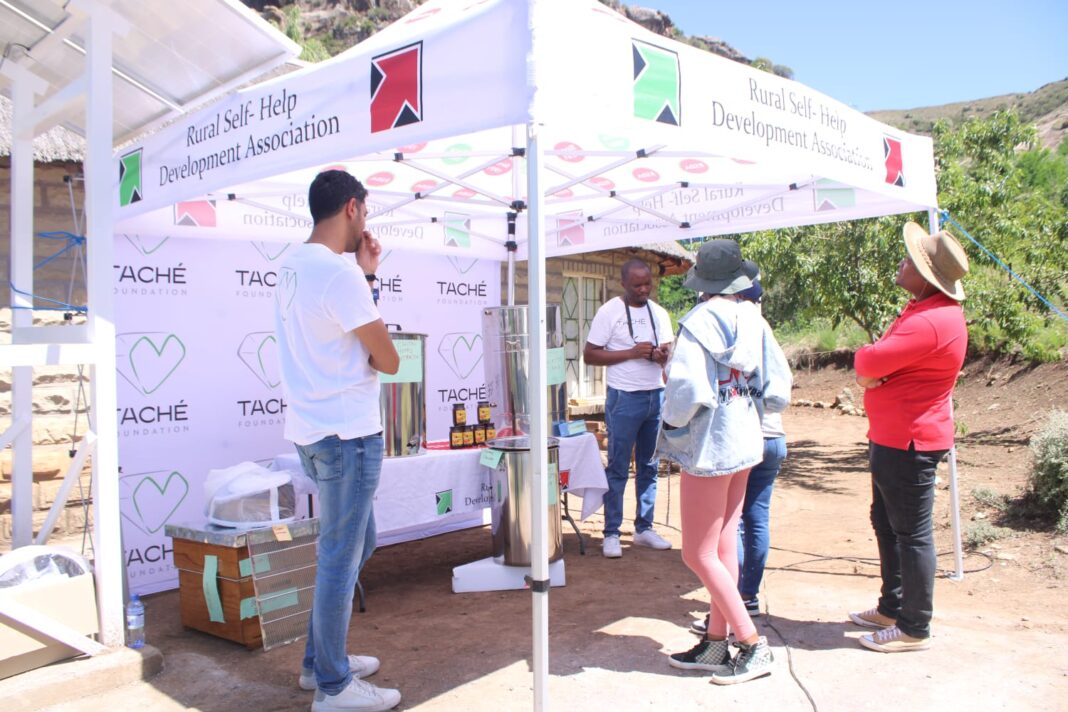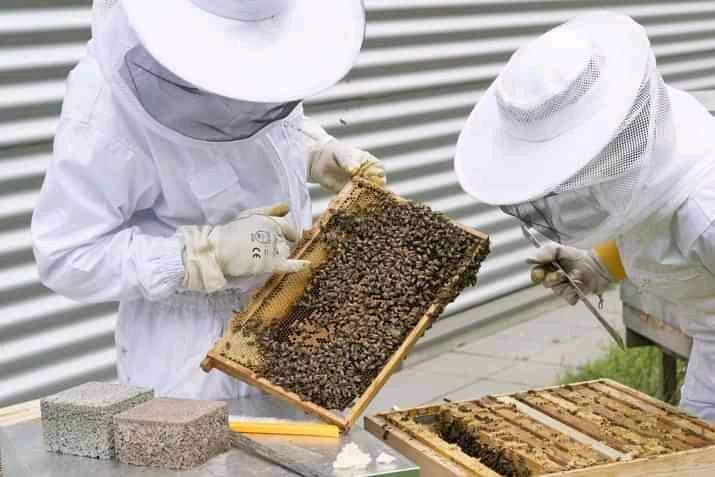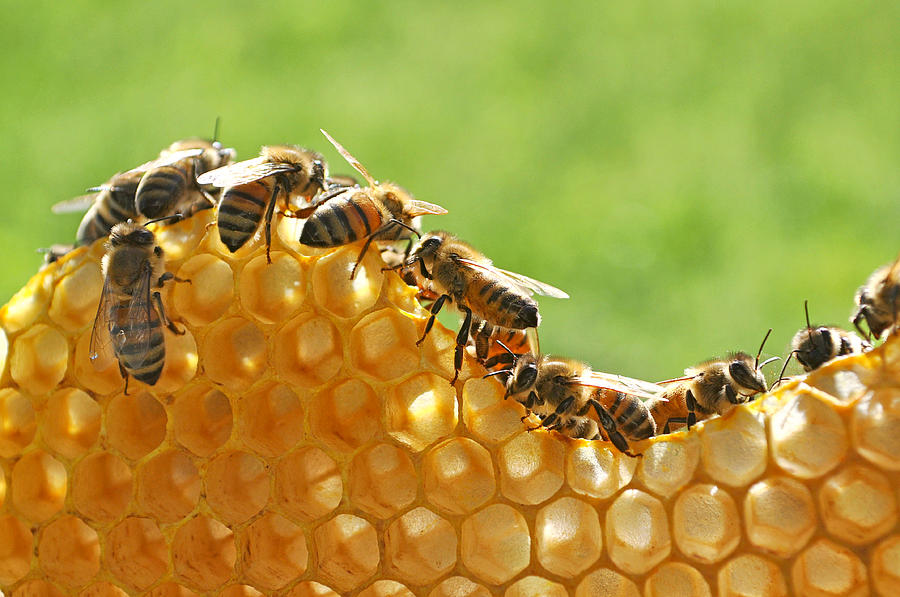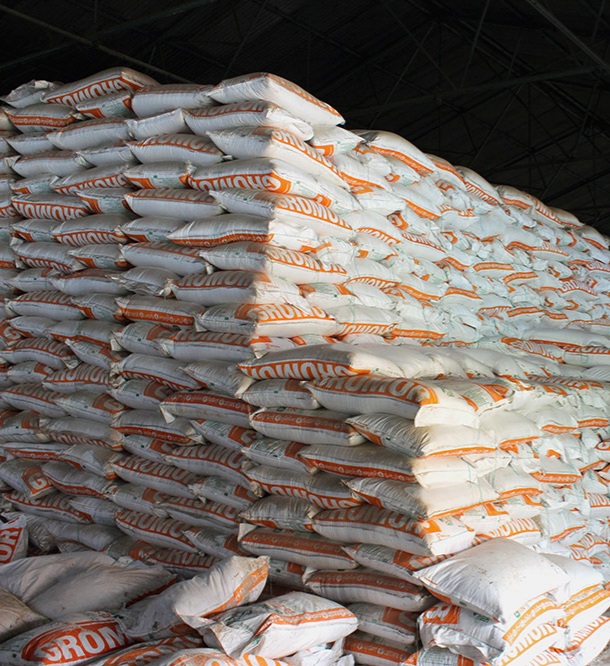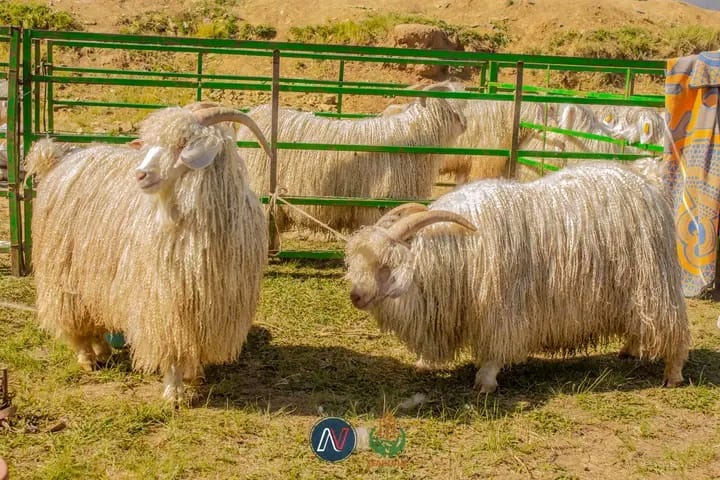By Lerato Matheka
Lesotho’s beekeeping industry is experiencing a transformative phase, with the Rural Self-Help Development Association (RSDA) spearheading initiatives to harness its economic potential.
The recent inauguration of the Beekeeping Centre of Excellence
in Shalane, Phamong, marks a significant milestone in this journey.
Background of Lesotho’s Beekeeping Industry
Traditionally, beekeeping in Lesotho has been a small-scale activity, with farmers maintaining a few hives primarily for personal use.
The country’s diverse flora and favorable climate provide an excellent environment for
apiculture. RecogniSIng this potential, initiatives have been launched to enhance honey production and empower local communities and these includes the United Nations Development Programme’s (UNDP) focus on building the capacity of women in beekeeping, aiming to remove barriers and upscale the industry in Lesotho.
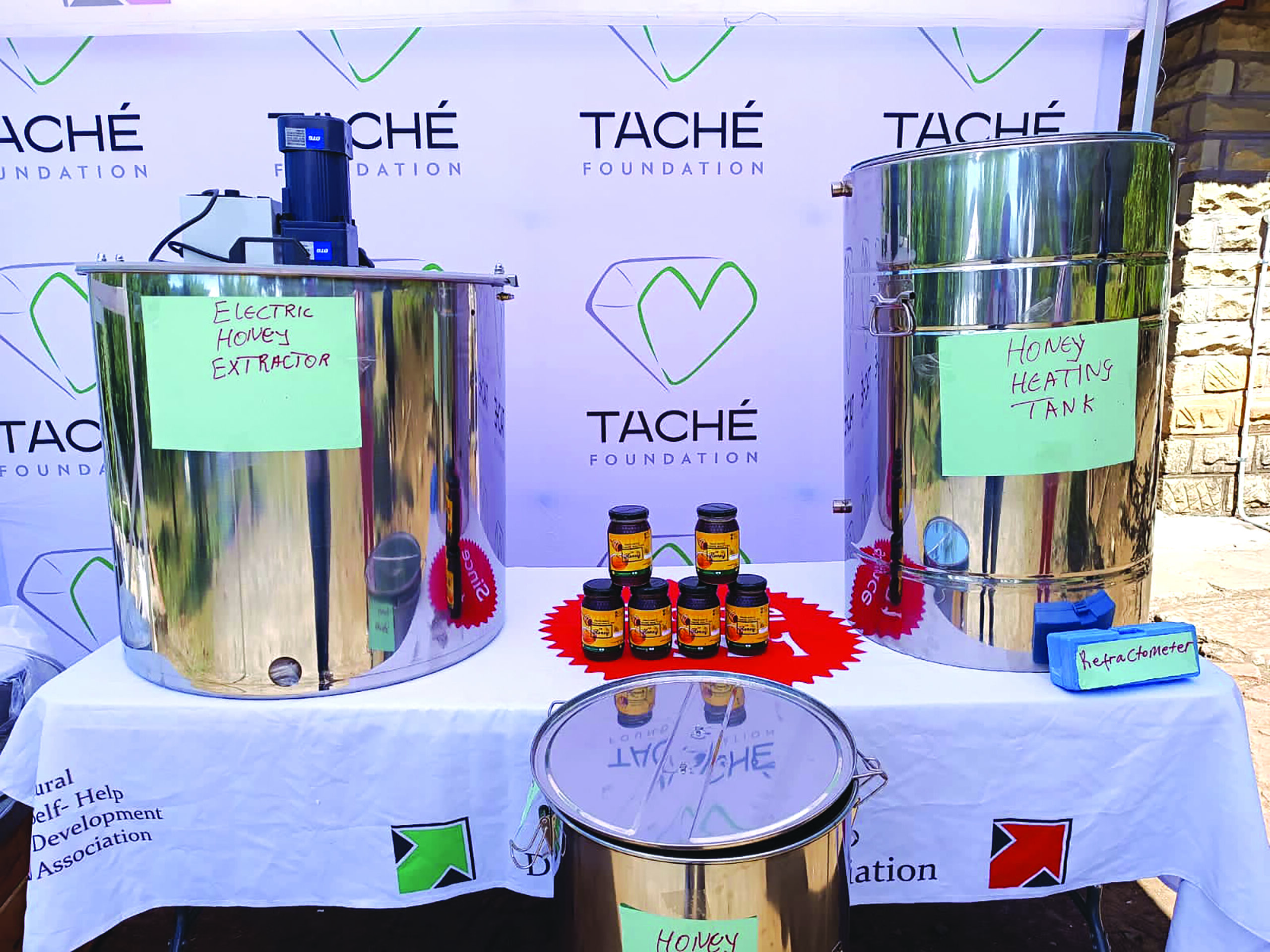
RSDA’s Beekeeping Centre of Excellence
The RSDA’s journey into
beekeeping began modestly with two boxes of bee hives supported by the UNDP’s small grants department.
The success of this initiative spurred interest among local farmers, necessitating expansion.
With the backing of the Tache Foundation, a long-term partner, RSDA established the Beekeeping Centre of Excellence in Shalane, Phamong.
This region was chosen for its
rich potential in beekeeping, attributed to its unique geographical characteristics.
Mampho Thulo, Managing Director of RSDA, remarked, “We started with two boxes of beehives after the UNDP small grants department endorsed and approved our dream of trialing beekeeping. The interest and growth were exponentially fulfilling, and there was a need to expand and invite more farmers who would show interest,” she said.
She further emphasised the significance of the Tache Foundation’s involvement: “Unlike their previous involvement of just giving us money, they will be walking this journey with us.”
Thulo explained that the Centre aims to aggregate, build, and export organic honey to international markets.
Over the past three years, she noted efforts have been directed
towards establishing production standards and securing markets.
“The focus on organic honey production aligns with the community’s commitment to organic farming methods,” Thulo explained.
She indicated that the Centre also serves as a hub for innovation, inviting farmers nationwide to learn and adopt beekeeping practices.
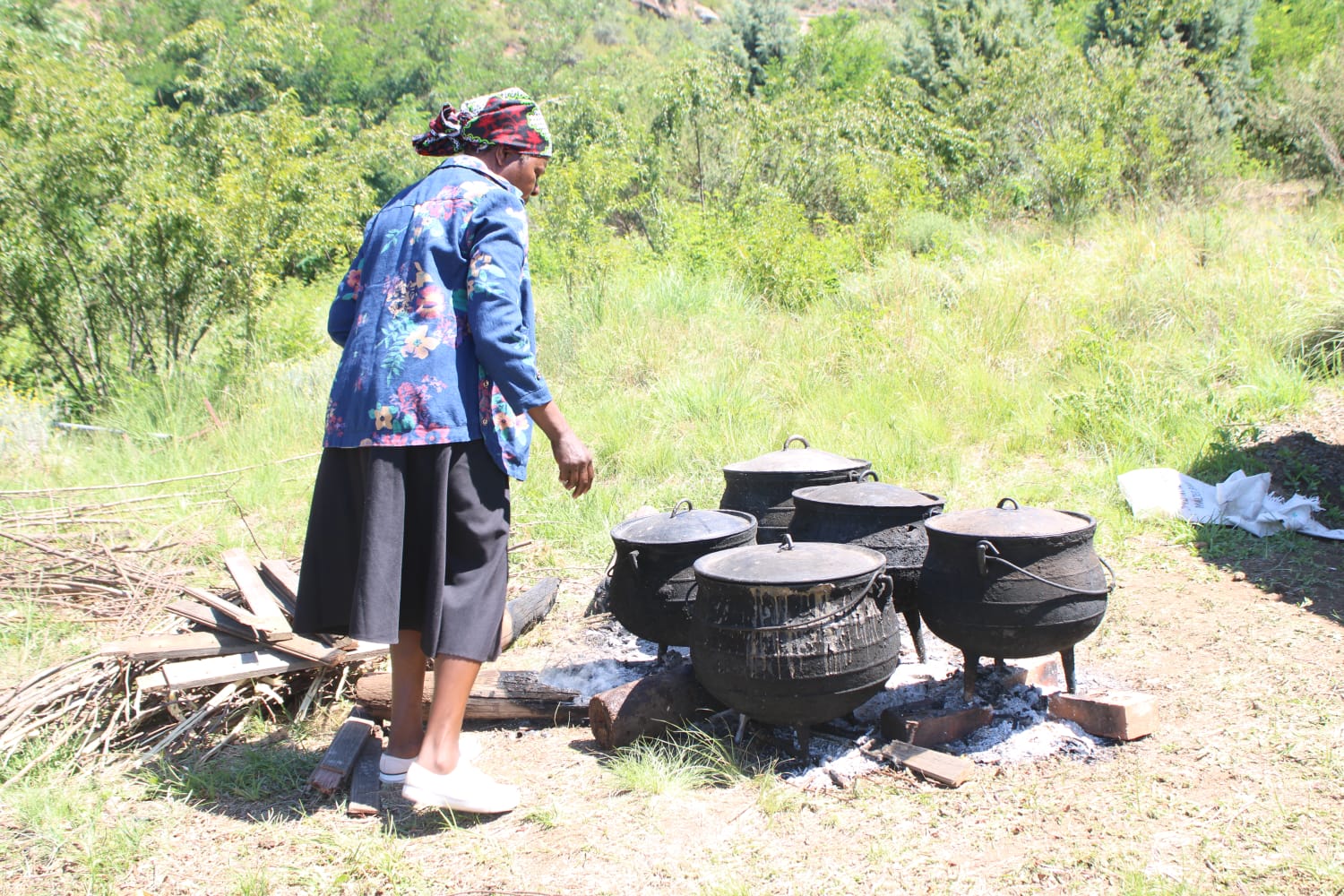
Economic Potential
Beekeeping offers a viable income stream for Lesotho’s farmers and studies have shown that with proper management, a farmer can derive a net income of approximately M600 per hive.
Scaling up to 20 hives could yield a net income of over M12,000 annually, significantly contributing to household incomes.
The establishment of the Beekeeping Centre of Excellence is poised to enhance these
economic benefits by providing training, resources, and market access to local farmers.
By focusing on organic honey, the Centre taps into a growing international market, potentially increasing export revenues for Lesotho.
Community Impact
Local leaders and community members have expressed gratitude for the opportunities presented by the Centre. Keketso
Nkaki, Community Councilor of Shalane, stated, “We are very thankful to RSDA for considering our community for this great opportunity. Listening to the information of this project, everyone who lives here is directly going to benefit, and food production is going to improve solely for embracing beekeeping.”
The initiative is expected to improve food production and self-sufficiency, particularly in regions like Shalane, where
farmers have traditionally engaged in sorghum cultivation.
The integration of beekeeping is anticipated to diversify income sources and promote agricultural innovation among the youth.
Letlamoreng Lehloenya, a leader of the Majantja Temong farmers association, expressed joy for being chosen as the base for RSDA’s Centre of Excellence, indicating this would increase the agricultural appetite among
the youth.
He revealed that farmers in Shalane specialise in ploughing sorghum after learning their community’s geographic makeup and soil strength.
The Centre’s launch included the presentation of apiculture equipment for beekeeping, bee-catching, honey harvesting, processing, and packaging, all donated by the Tache Foundation.
This support underscores the collaborative effort to empower local communities and promote sustainable agricultural practices.
Thulo emphasised that the RSDA’s Beekeeping Centre of Excellence represents a significant step towards harnessing the economic potential of beekeeping in Lesotho.
“By providing training, resources, and market access, the Centre is
set to transform livelihoods, promote sustainable development, and position Lesotho as a notable player in the international organic honey market.”
Summary
- RecogniSIng this potential, initiatives have been launched to enhance honey production and empower local communities and these includes the United Nations Development Programme’s (UNDP) focus on building the capacity of women in beekeeping, aiming to remove barriers and upscale the industry in Lesotho.
- With the backing of the Tache Foundation, a long-term partner, RSDA established the Beekeeping Centre of Excellence in Shalane, Phamong.
- Beekeeping offers a viable income stream for Lesotho’s farmers and studies have shown that with proper management, a farmer can derive a net income of approximately M600 per hive.

Your Trusted Source for News and Insights in Lesotho!
At Newsday Media, we are passionate about delivering accurate, timely, and engaging news and multimedia content to our diverse audience. Founded with the vision of revolutionizing the media landscape in Lesotho, we have grown into a leading hybrid media company that blends traditional journalism with innovative digital platforms.


